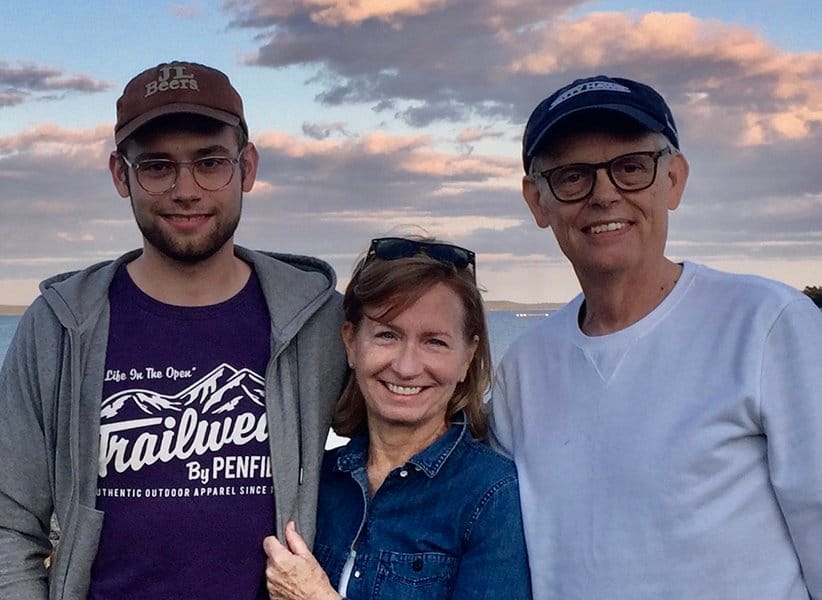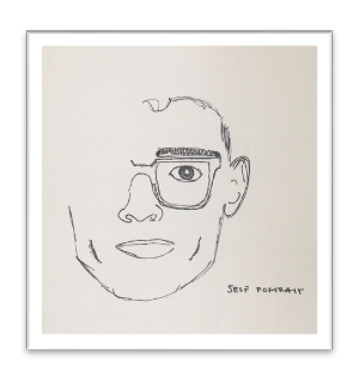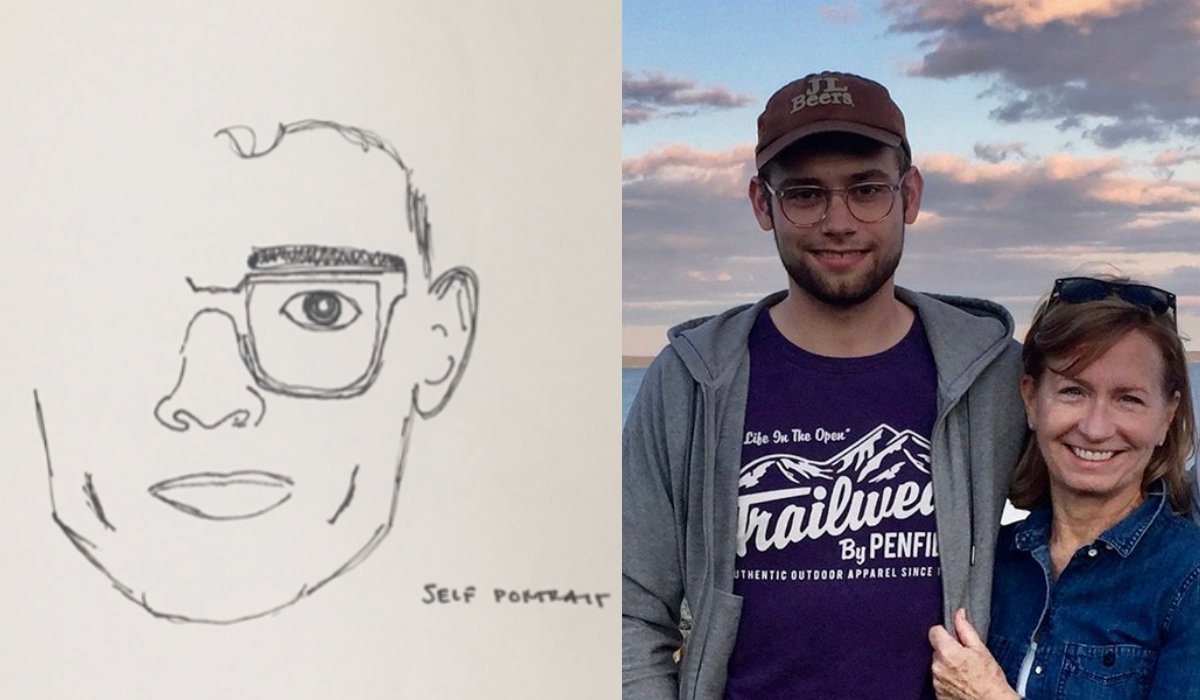My Son's Beautiful Broken Brain
We followed the Chief of Neuropathology along a sterile hallway toward the elevator. My husband’s hand pressing lightly on my back comforted me as we walked. We were headed to the Brain Lab where donated brains are held for examination and research.
The previous three hours had been spent with the doctor and his team. They’d reviewed their exhaustive post-mortem study of our 24-year-old son Matthew’s brain. Using photos, imaging, and slides of cross-sections of his brain, they led us through the findings, carefully making sure we understood, answering our questions about the extensive damage they found.
“Do you want to see Matt’s brain?” the doctor asked. “We have it ready for you in the lab if you do.”
My answer was a swift “Yes.” I needed to see the damage the doctor described for myself and for Matthew. Could Matthew have recovered from his early injury and later five-year struggle?
I felt my heart thumping as we followed the doctor’s white coat and quick steps. Moisture beaded on my forehead. Scared but determined, I took a deep breath. I would be brave. This would be one of the hardest things I would ever do. I felt anticipation mixed with fear. No more pictures of Matt’s brain. This would be the real thing.
We were at the door of the lab now. “Are you ready?” the doctor asked.
“Yes,” we responded in unison.
We’d learned of our only child’s death six months earlier. The county coroner came to our home on a Saturday in late February. He told us Matthew died by suicide that day. As his mother that is painful to admit. Yet, it is the truth. We held on to him fiercely, but we were unable to save Matt.
An autopsy was scheduled for the morning after his death. Matthew was 6’2”, 183 pounds with a full-trimmed beard, his brown hair was three inches long, and he had neatly trimmed fingernails, according to the autopsy report. What the autopsy couldn’t reveal was Matt’s humor, his crooked smile, his kindness, and his love.
“We want his brain examined,” I had begged the coroner. Lingering in my mind was the thought there might be a connection between a severe head injury Matt sustained at age five and problems that began at age nineteen and ultimately led to his death. I needed to know for myself and for Matthew. We asked ourselves, Was there something we all missed that could have saved him, or had his fate been sealed 19 years earlier?
The Brain Lab at this major research university had accepted the donation of Matt’s brain for analysis and research. Coincidently, this was the college Matt had attended. When hearing Matt’s brain was now there, one of his friends, a classmate, remarked with sweet humor, “Leave it up to Matt to get accepted twice.”
When he was five years old, Matthew had suffered a traumatic brain injury (TBI) falling from an upstairs window. He was on the threshold of death that day and the week following. His first question when regaining consciousness was, “Will I still be smart?”
“Yes, you will,’’ I answered, hopeful it would be true. Miraculously, he appeared to recover fully within a few months and led a rich, wonderful life with us. Doctors at the time gave us no reason to believe there would be any ongoing problems from this early TBI. Other than normal annual medical examinations, there were no follow-ups for his injury. He not only survived, but for the next fourteen years, he thrived.
In Matthew’s journal from when he was a senior in high school, I found what he described as a “perfect day.” His writing captures many things important to Matt: running, books, food, movies, music, friends, and family. Matt’s words only hinted at his passion for learning and his creativity. During that time, I was looking on as he had many perfect days.
At the age of nineteen, in his sophomore year of college, Matt unexpectedly started experiencing what doctors diagnosed as major depression. Although informed of his previous head injury, doctor after doctor dismissed any link. After all, they told Matt that he had recovered from his accident. We all wanted to believe these experts; Matt would get better. With the right treatments, his diagnosed depression could be overcome.

Matt began a deep search to understand what was happening to him, to conquer his depression, and to heal himself. He sought out expert opinions, therapies, medications, hospitalization, research, journaling, meditation, and lifestyle changes, unfortunately, all with little effect. Although he had always been an optimist, Matt grew cynical about life. His “perfect days” became fewer until he didn’t have them anymore.
“My brain is dying,” he told me. “It will never get better. Sometimes bad things happen, Mom, and they can’t be fixed. My brain is broken.”
“You are my boy, Matt, and I will never stop fighting to help you,” I said to him.
“I’m not your boy anymore Mom, that boy is lost. Nothing works, it’s getting worse.”
An exhaustion of spirit resulted from his long, continuous battle. Simply put, he eventually lost all hope of getting back to his former healthy, vibrant self. Losing hope was devastating to Matthew. He was suffering with no relief. In the end, he concluded there was no place on earth for him.
When asked if I wanted to see Matt’s body after he died, I had said no.
I wanted to remember him as he was when he gave me what would be a final warm hug. We stood at the door of our home that February morning. I said, “I love you, Matthew.”
“I love you too, Mom,” he said while holding me a little tighter. “I’ll see you in a few hours, I’m going to meet up with some friends.”
He never returned. We never saw him again. A huge piece of my heart left too, forever gone with him. I was living a parent’s worst nightmare. I felt no anger or shame in the decision Matt made to end his life, only continuing love coupled with profound grief. He was everything to me, and now he was gone forever.
Now, I stepped toward the table in the middle of the lab. Laid out on what looked like two black poster boards were many cross-section slices of brain, Matt’s brain.
“It’s beautiful,” I thought. His brilliant brain, the very best part of Matthew was there before me. This three-pound organ made Matt all of who he was, his abilities, intelligence, personality, humor, emotions, opinions, likes and dislikes, memories, and his love.
The room was quiet for several moments as we took in the sight. I was calm. I felt the presence of extreme beauty and love. My heart felt like it would burst. Matthew was gone forever, but something of magnificence remained. His brain.
The doctor carefully explained the brain sections, pointing out the visible injuries, the long-ago contusion, fissures, and areas where brain matter had eroded. The head injury at age five left massive damage and resulting neurodegeneration. We were told Matt’s brain compensated for several years while he was growing, but eventually it could no longer do so. His were late-onset symptoms of the injury. Doctors were treating him for depression. I could understand now why their therapies didn’t help.
The doctor picked up a section of brain clearly showing damage. I held out my hands, and he laid it carefully in one palm.
I gazed at Matt’s brain as my tears welled. A memory surfaced of the first time I held him as an infant, his sweet baby face, button nose, and dimple in his chin just like his dad’s. How precious he felt to me then, somehow even more precious now.
A researcher standing to my left came closer to us. She told me she too is a mother. Shaking her head, she said quietly, sadly, “This is so brave of you, I can’t begin to imagine your loss.”
She pointed to a cross-section. “This is Matt’s hippocampus, where he stored his memories.”
She continued, pointing to another section. “This is Matt’s amygdule where he processed emotions.”
“Love?” I asked.
“Yes,” she said.
“He held our love there,” I whispered, choking a sob. My husband’s hand tenderly touched my shoulder.
I had one last question, “If we had met all of you very smart people when Matthew was still alive, could we have had a different outcome?”
The doctor looked straight into my eyes and told me he wished he could answer yes.
“Most of what we found in Matt’s brain no one would have been able to see while he was alive.”
“Even if a diagnosis could have been made, there is no treatment for Matt’s injury. The science for that doesn’t yet exist.”
The pathology showed the neurodegeneration was progressing. Matt’s brain could not have healed itself and recovered.
My intense love for Matt propelled me to find the answers. I had no more questions.
I looked at Matt’s dad. His nod told me he shared the solace I felt from getting confirmation of what Matthew had told us about what he felt was happening to his brain. Matt would appreciate my determination to understand what happened to him. He wasn’t wrong; he knew!
It was time to leave the lab. The doctor, the esteemed Chief of Neuropathology, sensed my reluctance and said, “You can come back anytime; Matt’s brain will be here forever.”
“Forever?”
“Yes, forever.”
We thanked the doctor and his team and quietly left the lab.
The heartbreak of losing Matt will remain for as long as I live. However, I felt a tiny bit of hope as we walked away. We had given part of Matt to science. He would be pleased. Matt’s brain will rest at the Brain Lab and be available to be studied by researchers all over the world seeking treatments for the injured brain.

Linda Dahl is a writer who lives in Kirkland Washington with her husband, Bob, Matt’s dad. Since their son’s death in 2019, they have become advocates for brain research. They support the University of Washington BRaIN (Bio Repository and Integrated Neuropathology) Research Lab at UW Medicine in Seattle where Matt’s brain rests, which you can learn more about here and you can donate to neuropathology research in honor of Matt here.




